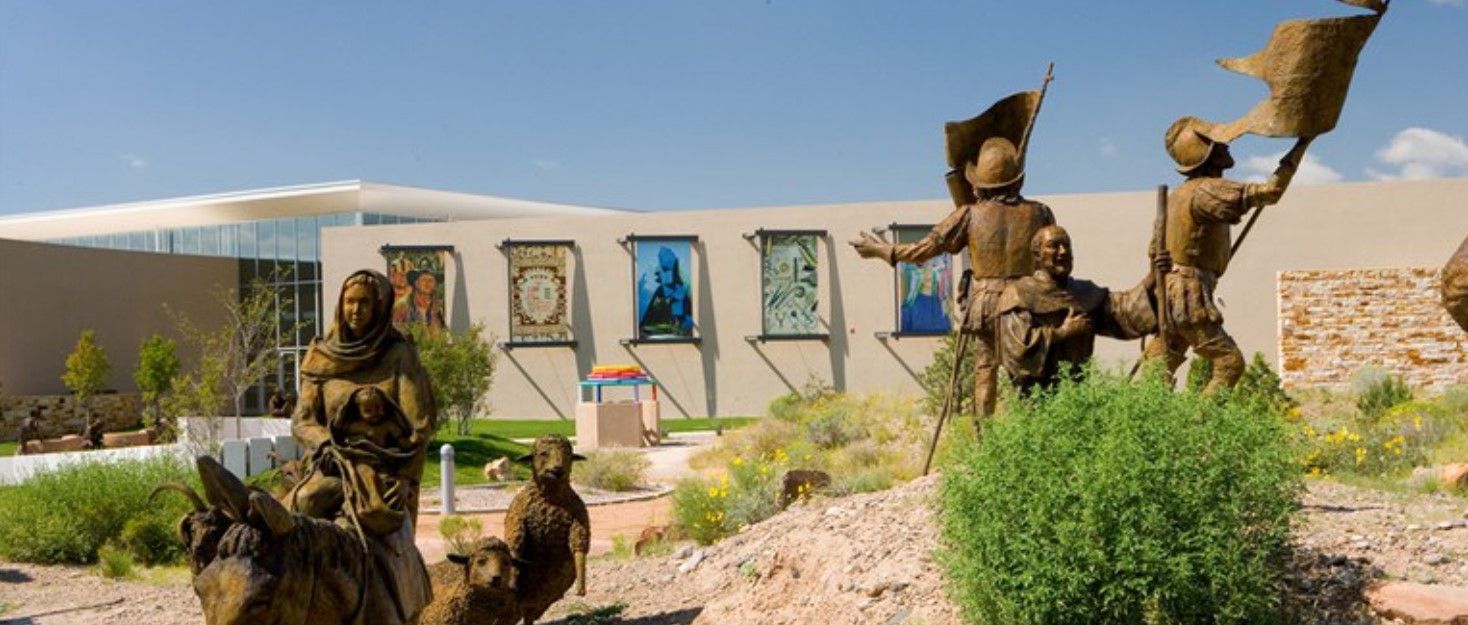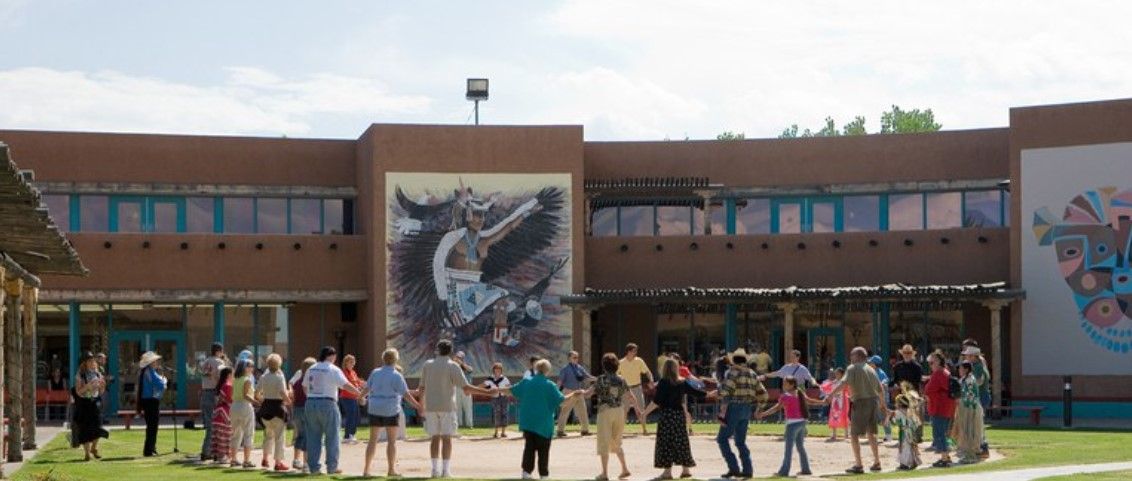Learn about City of Albuquerque including our News & Press Releases, Projects, and Team.
Talk to us
Have questions? Reach out to us directly.
Learn about City of Albuquerque including our News & Press Releases, Projects, and Team.
About City of Albuquerque
- Population
- 560,447
- Bonds Outstanding (as of 6/30/2023)
- $751,228,258
- CARES Act Relief Funding
- $150 million
The City, founded in 1706, is the largest city in the State of New Mexico (the “State”), accounting for approximately one-quarter of the State’s population. The City is a home rule municipality, with its charter originally adopted in 1971, and has a Mayor-Council form of government with a salaried full-time Mayor elected every four years. In 2020, the City had a population of approximately 564,559 people and, as of December 31, 2021, spanned 189.21 square miles. The Albuquerque Metropolitan Statistical Area had a population of approximately 923,630 people as of 2020.
The City’s financial sections provide timely, accurate, and relevant financial, facility and information management services. They provide these services to City departments, residents, and businesses in an innovative and efficient manner. These services include:
- Protecting municipal assets
- Supporting the optimal delivery of City services to the public
- Enhancing the planning and decision-making process in City departments
We strive to be a progressive center of excellence that is a valued resource, fostering innovative business solutions, encouraging professional ethics, fiscal integrity, trust, and stewardship of city financial, physical and information resources.
Our organizational environment encourages integrity, innovation and creativity. We recognize both individual and group achievement.
Image Gallery



News
ALBUQUERQUE – On Monday night, the City Council moved and passed a balanced City Budget, but not before amending it, to ensure further accountability and transparency.
The full Council’s consideration of the budget began with the Council Budget Staff’s thorough examination of the Mayor’s Administration organizational chart. The presentation identified several positions on the Mayor/CAO’s internal organizational chart not clearly delineated in the chain of command and funded from other departments. Council President Lewis’s amendment identified all these positions, reassigned them into the CAO’s office and then provided the funding for the positions by moving them from the various departments’ budgets to the CAO office budget.
The Chief Administrative Officer’s budget went from $3.1M to $6.6M, a $3.5M increase.
Attached is the amendment that passed unanimously by Council before passing the budget as a whole.
“This amendment brings accountability and transparency to the Mayor’s office,” Council President Lewis said. “By identifying staff who report directly to the CAO and Mayor, we can better work with them to do the business for all residents of Albuquerque.”
The $1.4 billion dollar FY 25 budget takes effect on July 1 and funds all the operations of the City of Albuquerque.
ALBUQUERQUE - The Albuquerque City Council passed a balanced $1.4B budget Monday evening, focusing on public safety, keeping fees low, and creating a new pilot program to focus on mental health.
The Council’s budget does not reduce APD, Community Safety or AFR, and adds a new EHD food inspector. The Council’s budget increases Library technology by $200k to a total of $400k which will enhance access to digital resources and educational tools. Council’s budget also adds $250k to the BioPark for food and $250k for food at the Animal Welfare Shelters.
“I’m proud of this budget, especially since the forecasts indicate a smaller than expected growth rate,” Councilor Klarissa Peña said. “We were able to expand social services, maintain our levels of public safety, and keep fee increases for our residents at a minimum.”
Councilors amended the budget (C/S R-24-36) to eliminate aquatics program fees, create a one dollar raise to municipal golf greens fees, and to build in accountability and transparency to City Administration and its functions.
The Council’s Committee of the Whole Chairwoman Klarissa Peña also included funding to leverage local funds to match Federal Medicaid or Medicare resources for either the Home and Community Based Services (HCBS) 1915© Waiver or the Medicaid 1115 Demonstration Waiver, creating a pilot program that offers wrap-around services for individuals with psychiatric and/or substance abuse disorders.
Peña commended the Council staff for their hard work in working together with the Mayor’s staff to submit a budget that achieves the City’s goals and objectives while maintaining fiscal responsibility and transparency for City residents.
Proposed Budget Maintains Key City Services & Programs Without Cuts or Rollbacks.
As rising costs for goods and services continue to impact families and businesses across Albuquerque, City Council will take up the Keller Administration’s proposed budget this week. In a time of rising inflation, local governments are facing tough choices, and Albuquerque is no different.
“Our community expects, and deserves, quality City services, programs and amenities,” said Mayor Tim Keller. “While other cities are cutting back, we’re ensuring that families don’t lose access to the public resources they count on.”
The proposed budget maintains a full scope of critical services for Albuquerque residents and businesses, including fighting crime, addressing housing and homelessness, behavioral health and addiction response, youth and family programs, quality of life improvements and vital basics like new and repaired roads, lighting, parks, community centers and libraries.
While the proposed budget shows an increase in expected revenue, the cost of providing expected services and amenities has also increased drastically. For instance, over the past five years, food costs have increased 44% and next year they are projected to increase another 20%. A January 2024 New Mexico Legislative Finance Committee report notes that national non-residential construction costs increased by 43% from January 2019 to October 2023.
“The City, like families and businesses, feels the impact of increased costs across the board,” said Chief Financial Officer Kevin Sourisseau. “Our City departments are being incredibly creative as they work to find efficiencies and streamline services so that we can continue to deliver for Albuquerque families.”
With dramatic increases in costs across the board came questions about how to best keep services stable. Since 2017, the Keller Administration has consistently prioritized access for families, residents, and businesses, keeping fees and entry costs to City amenities very low. With the new reality of inflation and increased cost of labor, City fees and prices are no longer in line with what it costs to actually provide those services. For example, fees for the Planning Department have not increased in 15 years, and the proposed adjustments will allow the department to add additional resources to expedite permitting in order to help the city develop in a sustainable way and address critical needs for services and housing. Fees for the BioPark haven’t increased in over 7 years, and very modest increases will help the team provide the best care for animals and keep up with the rising cost of running a world class facility.
Though some have zeroed in on modest increases in fees and ticket prices to criticize the proposed budget, these are not only in line or below regional comparisons, but still provide very high-value, low-cost public family entertainment, activities, and amenities during tough times. The proposed increases are long overdue and are necessary adjustments that will allow the City to maintain and improve the services and programs we offer.
As with any other budget year, funds from fees are directed to the General Fund, where they overwhelmingly support essential City services such as police, fire and rescue, senior support, municipal development, transit, youth and family services, behavioral health and addiction outreach and more.
Projects
Team

Matthew Whelan

Donna Sandoval, CGFM, CISA, CISM
Talk to us
Have questions? Reach out to us directly.



